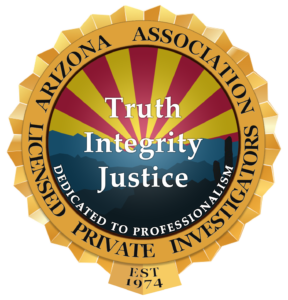What Does a Private Investigator Do?
A frequently asked question on the Internet is “What does a private investigator do?” People typically envision a stereotypical fedora and trench coat-wearing, wisecracking, cigar-chomping “old school” street detective. In reality, though, a private investigator is typically hired to obtain specific fact-based information to help them make more informed decisions.
As an aid to help our clients better understand the nature of the Private Detective industry, the processes by which we work, and the regulations by which we are governed, we have prepared this information sheet so you may have more realistic expectations regarding the work Executive Services Agency, PLLC will conduct on your behalf.
But what does a private investigator really do?
1) Find Facts: Making decisions based on certain rumors, misconceptions, preconceived notions or a “gut feeling” can be extremely risky. Private investigators can provide in-depth, fact-based information from an array of various resources and certain skill sets that are not always available in the public record. In addition, experienced investigators have unique analytical thinking that is needed in problem-solving situations.
2) Identify Risks: Whether you are in business negotiations, contemplating an investment vehicle or hiring an employee, each situation has its own set of risks, both in capital and reputation. Investigators are both trained and experienced in identifying either red flags or damaging issues that may be useful to know before relationships are established.
3) Provide Peace of Mind: A suspicion of a subject’s prior issues can cause anyone to lose sleep. In this situation, an investigator can provide the necessary information beyond the handshakes and resumes. An investigator can corroborate certain facts or details that could not have been verified elsewhere. The objective of any investigation is to provide the facts (good or bad). The most rewarding cases are the ones where we are able to verify the subject’s information and can give our clients back the peace of mind they were seeking.
4) See the Big Picture: Some of the most successful entrepreneurs in the world today have credited their successes to following their passions and instincts. However, having someone in your corner to provide you specific information in order to hedge your own abilities is reassuring. An investigator can view the situation objectively and provide an alternative viewpoint to the matter at hand.
The Nature of Investigations
1) Authority: We have no more authority than does a private citizen. We are not police officers. The training, testing, background checks, and certification process we go through in order to obtain our licenses is meant to set us apart as individuals who are committed to unbiased professionalism. As such, we are bound to rigid codes of conduct dictated by the State of Arizona.
2) Not Attorneys: Though we are very knowledgeable of the laws governing our actions, any advice should not be considered as legal advice. Any advice we give concerning the direction or outcome of your case is merely a suggestion that should be approved by any legal representative you may have.
3) Not Magicians: We are not magicians. Ours is an industry revolving around detail gathered through available information, the understanding of this detail, and the working knowledge of how to follow the trails we uncover. This detailed information is generated through diligence and knowing where to look. Just as librarians are not geniuses, they simply are trained on where and how to find information.
4) No Guarantees: Sometimes the information generated is contrary to what the client hopes to find. We cannot guarantee results. We can only guarantee that the necessary information, documentation, etc. will be searched for diligently, legally, expediently, and as economically as possible.
5) Surveillance: If surveillance is necessary we feel obligated to inform you of the “real life caveats.” Surveillance, especially moving surveillance, is a hit and miss science. We can perform these observations under agreed upon time and location parameters but cannot promise activity on behalf of the subject. Similarly, moving surveillance carries with it inherent obstacles such as the unpredictable nature of traffic. There is no guarantee that contact with the subject can be maintained as we cannot predict traffic flow, traffic conditions, weather, or other unforeseen problems. As in number one above, we have no more authority than an ordinary citizen. This includes traffic laws. Similarly, privacy and private property laws will dictate the conduct of some surveillances.







